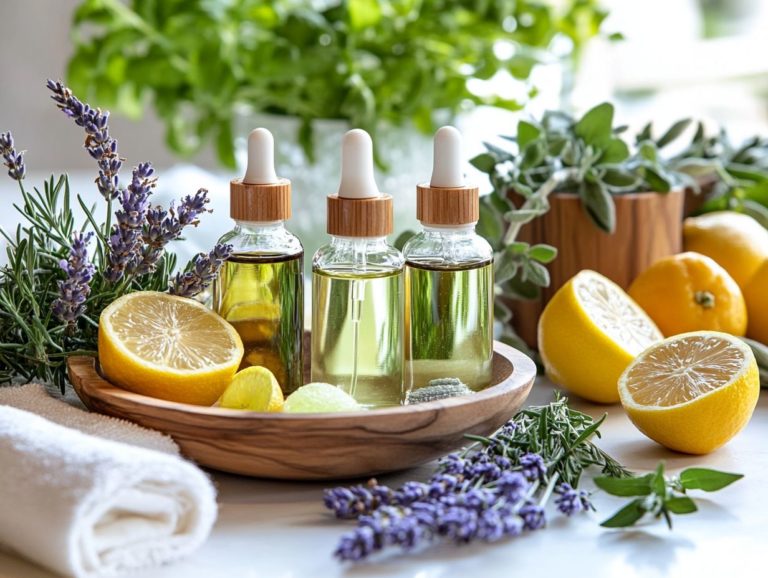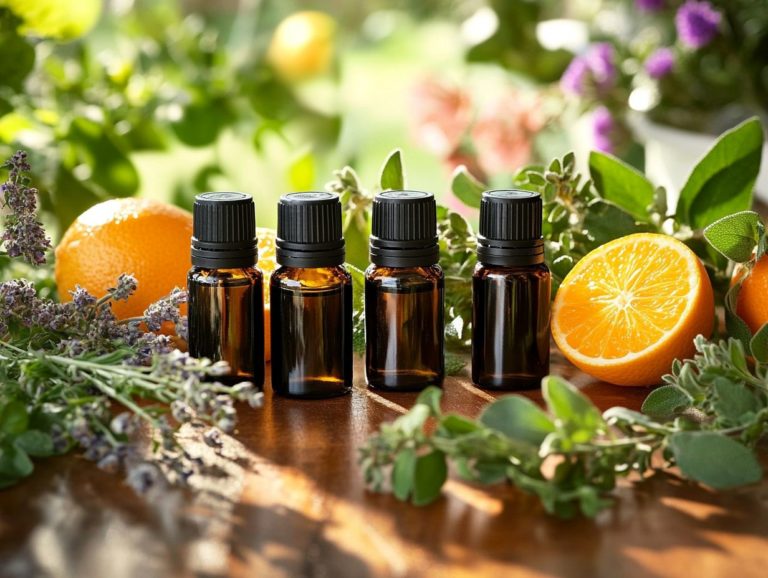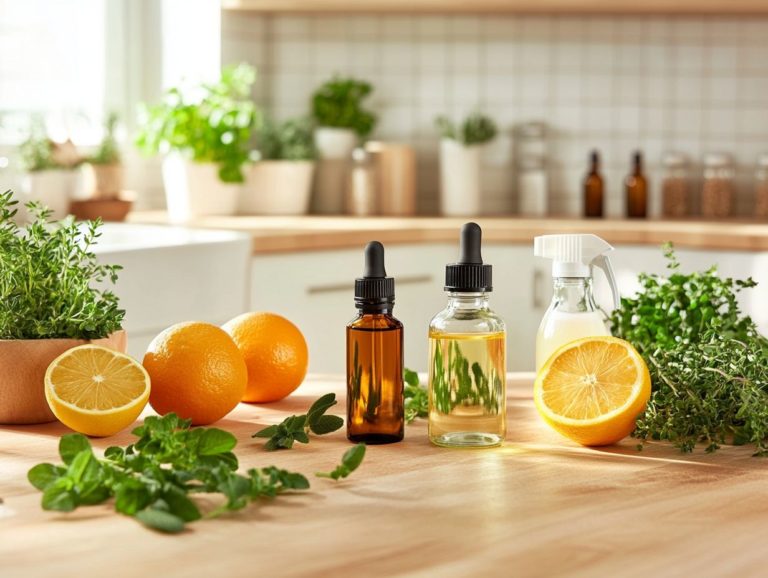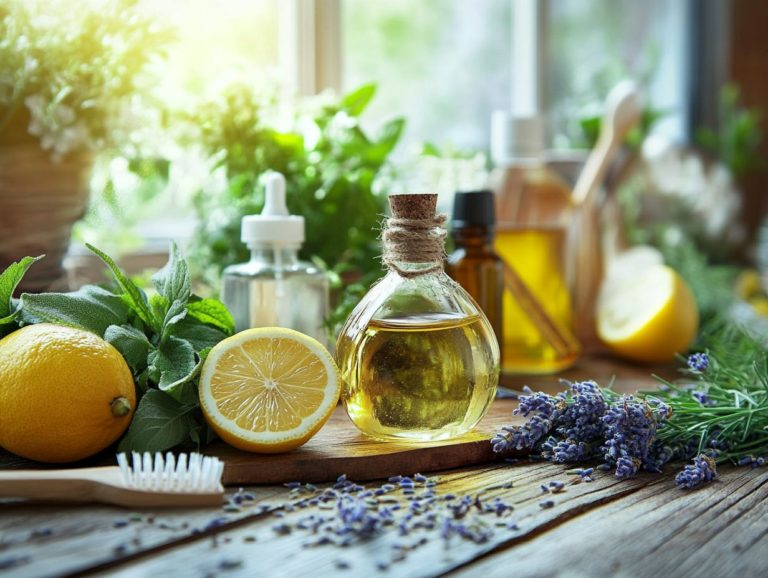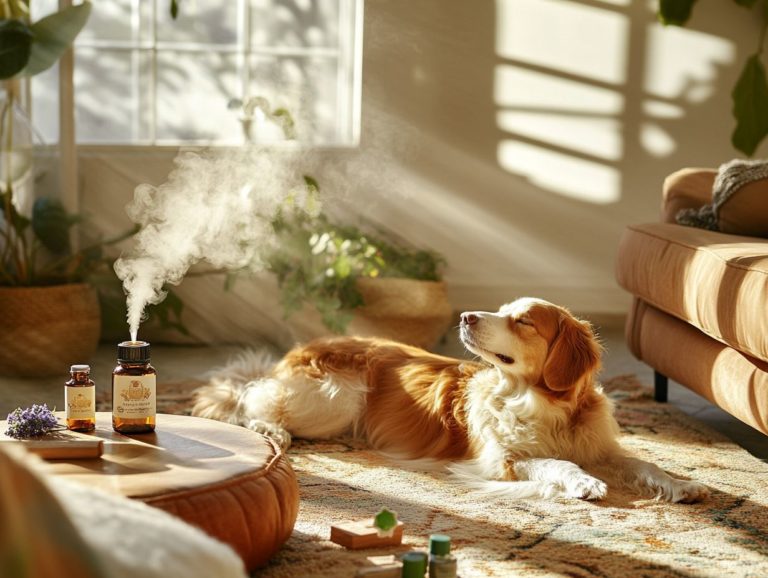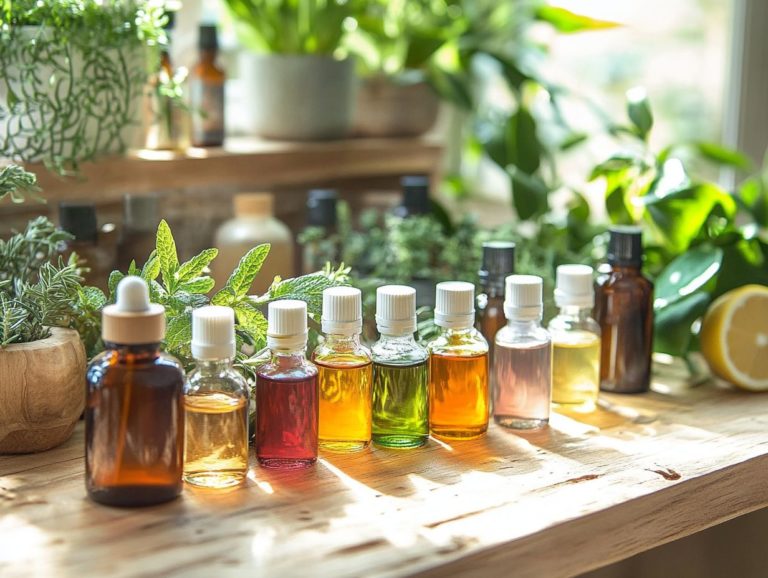Cleaning with Essential Oils: Common Mistakes
Essential oils are more than just fragrant accents in your home. They can transform your cleaning routine into a refreshing experience.
Delve into the world of essential oils and uncover their effective applications for cleaning. You ll discover a wealth of benefits these natural solutions offer. From their antibacterial properties that fend off germs to their enchanting aromas, they elevate your space.
However, understanding the world of essential oils can be tricky. Mistakes are easily made, so it s crucial to identify common pitfalls to avoid. This ensures you maximize your cleaning efforts while embracing a fresh, chemical-free environment.
Contents
- Key Takeaways:
- What Are Essential Oils?
- How Are Essential Oils Used for Cleaning?
- What Are the Benefits of Cleaning with Essential Oils?
- What Are the Common Mistakes When Cleaning with Essential Oils?
- Frequently Asked Questions
- What are some common mistakes people make when cleaning with essential oils?
- Can I mix different types of essential oils when cleaning?
- Are essential oils safe for all surfaces?
- Can essential oils be used to clean everything?
- What should I do if I accidentally get undiluted essential oil on my skin?
- How should I store my essential oils for cleaning purposes?
Key Takeaways:
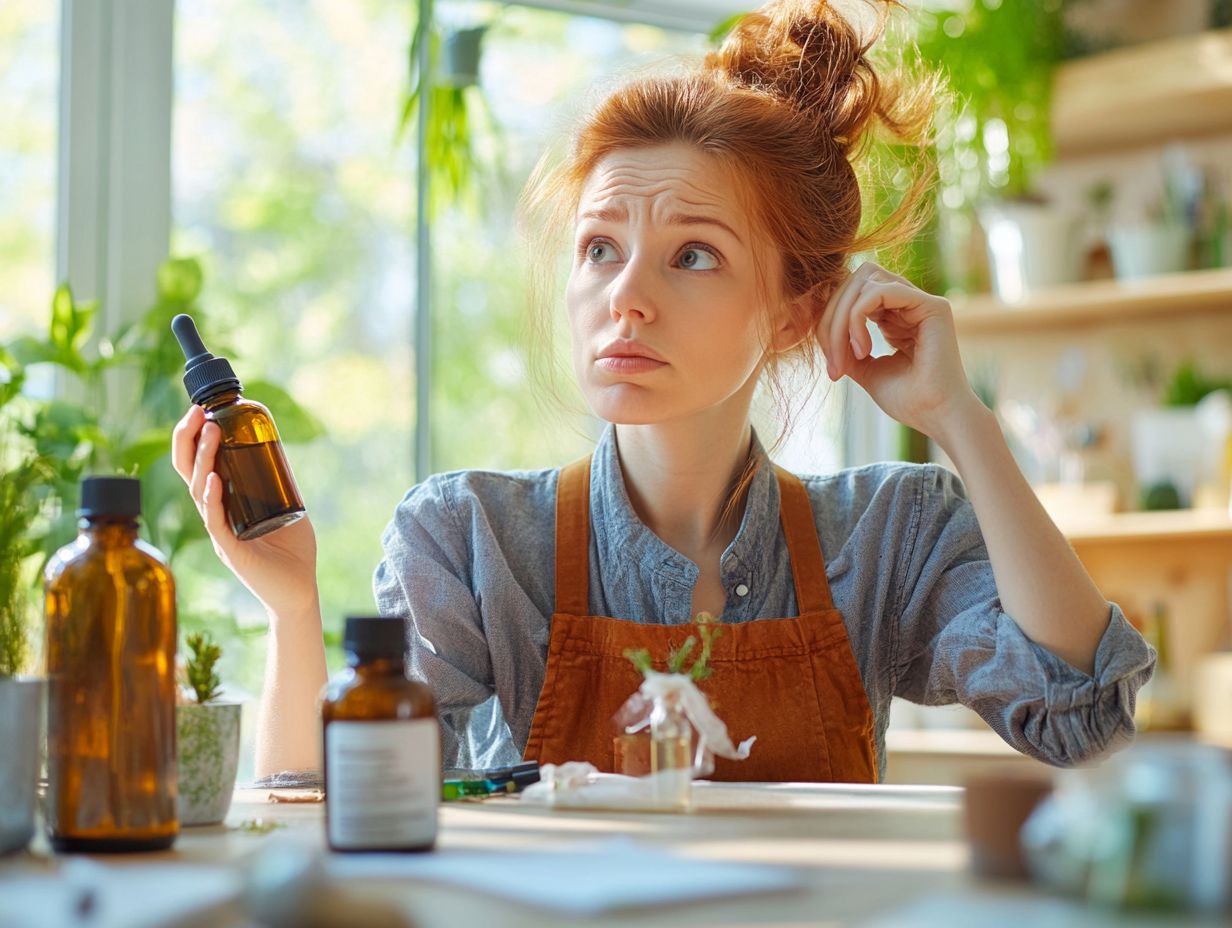
- Always dilute essential oils correctly to avoid skin irritation.
- Be careful about mixing oils; some combinations can reduce effectiveness.
- Patch test essential oils on a small area before applying them widely.
What Are Essential Oils?
Essential oils are concentrated extracts from a variety of plants, celebrated for their therapeutic benefits and versatile applications. Oils like lavender, tea tree, and lemon are typically extracted using methods like steam distillation, a process where steam helps extract oils from plants, and cold pressing.
Their natural fragrances not only elevate your mood but also promote overall wellness. This makes them favorites in both aromatherapy and your DIY creations.
The extraction process differs for each oil. This allows you to fully harness their unique properties, enhancing your cleaning solutions and personal care routines. It s essential to prioritize safety and quality to enjoy the full benefits of these remarkable plant extracts.
How Are Essential Oils Used for Cleaning?
Essential oils have become a sought-after choice for cleaning due to their impressive antibacterial and antimicrobial properties. They serve as an effective alternative to traditional cleaning products.
Tea tree and lemon oils disinfect surfaces and fill your home with refreshing fragrances. This turns the cleaning process into a more enjoyable experience.
Join the growing number of households discovering the magic of natural cleaning solutions! Many are crafting DIY recipes that blend essential oils with carrier oils or other safe ingredients to create powerful and environmentally friendly cleaning solutions.
You ll find that brands specializing in organic oils are now abundant. They offer a variety of options available for purchase at health food stores or online marketplaces like Amazon.
What Are the Benefits of Cleaning with Essential Oils?
Cleaning with essential oils unveils a wealth of benefits that elevate both your cleaning routine and your overall well-being. These oils have inherent antibacterial and antimicrobial properties that effectively eliminate germs and bacteria. They provide a safe alternative to harsh chemical cleaners.
By incorporating essential oils like lavender and lemon, you can enhance your mood and cultivate a refreshing atmosphere in your home. This transforms the mundane task of cleaning into a rejuvenating experience. Their concentrated nature means that just a few drops can yield impressive results, making them not only a sophisticated choice but also an economical one for your household.
1. Natural and Chemical-Free
Using essential oils for cleaning allows you to cultivate a natural, chemical-free environment vital for your health and wellness. These oils, derived from plant sources, possess powerful properties that clean effectively without the harmful side effects associated with traditional cleaning products.
By choosing natural alternatives, you significantly reduce your exposure to toxic substances, especially beneficial if you have pets or individuals at home sensitive to chemicals.
Essential oils often clean better than conventional products when tackling bacteria and odors. Take tea tree oil, for example; its renowned antimicrobial properties make it a stellar choice for disinfecting surfaces. Meanwhile, lavender oil not only cleanses but also infuses your space with a soothing aroma that can elevate your mood.
Embracing a lifestyle centered on chemical-free solutions fosters a healthier indoor atmosphere, enhancing your overall well-being. Ultimately, making the switch to natural cleaning products not only safeguards your health but also contributes to a more sustainable environment for future generations.
2. Antibacterial Properties

Many essential oils, such as tea tree and lavender, possess remarkable antibacterial properties. These oils are highly effective at disinfecting surfaces and curbing the spread of illness, especially in kitchens and bathrooms, where maintaining hygiene is crucial.
Incorporating these oils into your cleaning routine enhances the effectiveness of your cleaning solutions and creates a safer environment for yourself and your loved ones.
Consider using eucalyptus, peppermint, and lemon oils as well, which also show significant antibacterial effects against various pathogens. For example, eucalyptus oil invigorates your space with a refreshing aroma and is effective against E. coli.
Lemon oil offers natural antiseptic qualities that can help eliminate germs lurking on countertops and cutting boards. Utilizing these essential oils in your DIY cleaning sprays or adding them to your laundry can significantly elevate the safety and cleanliness of your home.
Just remember to dilute these oils properly and conduct a patch test to minimize any potential skin irritation, ensuring their effective and safe use in your cleaning regimen.
3. Pleasant Aroma
One of the most delightful aspects of using essential oils for cleaning is the captivating aroma they bring. Imagine how oils like lemon and jasmine not only banish odors but also create a refreshing atmosphere that lifts your spirits.
This sensory advantage makes cleaning with essential oils a joyful experience, encouraging you to embrace more frequent and enjoyable cleaning routines.
Incorporating fragrances such as lavender and peppermint can further elevate your mood, transforming cleaning from a chore into a rejuvenating ritual. Research indicates that certain scents can lower stress levels and increase happiness, significantly enhancing your overall well-being.
Picture a home filled with the invigorating scent of eucalyptus as you wipe down surfaces, effectively eliminating germs while flooding the air with positivity.
By embracing these delightful essential oils, you can elevate your cleaning experience into a holistic approach that nurtures both your living space and mental state.
What Are the Common Mistakes When Cleaning with Essential Oils?
Using essential oils for cleaning offers remarkable benefits, but it’s crucial to be aware of common mistakes that can undermine their effectiveness or pose safety risks.
Many individuals neglect to dilute essential oils properly, compromising their cleaning power and increasing the risk of skin irritation or adverse reactions. Others may unwittingly mix incompatible oils, overlook the importance of conducting patch tests, or misuse concentrated oils without the appropriate carrier oil, leading to undesirable symptoms.
Understanding these pitfalls is essential for unlocking the full potential of essential oils in your cleaning routine. Start your journey to a healthier home today by incorporating essential oils into your cleaning routine!
1. Not Using the Right Dilution Ratio
One common mistake you might make when using essential oils for cleaning is not using the right dilution ratio. This oversight can lead to ineffective cleaning solutions or unwanted irritation.
Essential oils are highly concentrated, and using them undiluted or in improper ratios can diminish their cleaning effectiveness and pose risks to your skin and respiratory health.
Proper dilution is essential for ensuring that these potent oils deliver optimal results while minimizing potential hazards. As a general guideline, aim to mix 3-5 drops of essential oil per ounce of carrier liquid, such as water or a suitable oil.
For instance, oils like tea tree and eucalyptus typically require a 1:10 dilution ratio to avoid skin irritation, while lavender can be diluted at a 1:5 ratio for use in cleaning solutions.
Understanding the specific dilution needs of each oil enhances the efficacy of your cleaning routine and safeguards your health. By properly diluting your oils, you’ll not only clean effectively but also protect your health!
2. Mixing Incompatible Oils
Mixing incompatible essential oils is a common pitfall that can undermine their effectiveness and trigger unwanted reactions. Not every oil works well with another, and certain combinations may dull their natural properties or lead to allergic reactions, such as skin irritation or respiratory discomfort.
Grasping the nuances of essential oil compatibility is essential when creating effective cleaning blends. Oils like lemon and tea tree work well together, boosting their cleaning power and providing a refreshing scent.
On the other hand, combining lavender with citrus oils can create a discord. The soothing essence of lavender may be overshadowed by the invigorating nature of citrus, resulting in an unbalanced mixture.
That s why researching oils is crucial. Identifying which oils enhance one another and which may diminish their benefits ensures safety and maximizes the efficacy of your cleaning products, making them more effective and enjoyable to use.
Using organic oils can further enhance the therapeutic and antibacterial properties.
3. Not Patch Testing

Don’t skip patch tests! They are crucial to avoiding unwanted reactions. Neglecting to conduct patch tests before using essential oils, especially on your skin, can lead to undesirable symptoms.
Patch testing is your first line of defense in identifying any potential skin sensitivities or allergies. It s essential for ensuring safe application and preventing irritation or discomfort, especially when using concentrated oils.
To do a patch test, apply a small amount of diluted essential oil to your wrist or elbow. Wait for up to 24 hours to see if there’s any irritation.
After application, monitor the area for signs of irritation or allergic reactions, such as redness, itching, or swelling. Observing these symptoms will help you assess any adverse reactions.
Keeping a vigilant eye on these symptoms enhances your overall safety in usage.
4. Using Too Much Oil
Overusing essential oils can be counterproductive. Higher concentrations do not guarantee superior cleaning; instead, they may provoke irritation or other unwanted reactions. These oils are incredibly strong, and just a few drops can deliver impressive cleaning results without overwhelming your senses or risking your health. Many DIY recipes recommend minimal usage to maintain safety.
Excessive amounts of essential oils can lead to skin sensitivity, respiratory issues, and even allergic reactions in some individuals. Maintaining proper concentration ensures benefits without side effects. When you use these oils in large quantities, you might mask their intended benefits. The more you rely on high concentrations, the more likely you are to diminish their effectiveness through overexposure.
For various cleaning tasks, a good rule of thumb is to use about 3-5 drops of essential oil per cup of cleaning solution. This balance is crucial for effective antimicrobial and cleaning properties. Each application should remain both safe and effective. Embracing moderation is key to unlocking the natural benefits of these oils while prioritizing your health and well-being.
5. Not Using a Carrier Oil
A common misstep is neglecting to use a carrier oil when applying essential oils directly to your skin or in concentrated cleaning solutions. This oversight can heighten the risk of irritation or allergic reactions. Carrier oils play a vital role in diluting essential oils, making them safer for topical applications while allowing you to reap their beneficial properties.
Using carrier oils boosts absorption of the oils into your skin. This practice becomes particularly crucial if you have sensitive skin or if you are using potent essential oils like clove or oregano.
When selecting the right carrier oil, consider factors such as your skin type, the intended use, and the specific properties of the oil. Here are some examples:
- Coconut Oil: Great for moisturizing.
- Jojoba Oil: Ideal for facial applications as it closely resembles your skin’s natural oils.
Utilizing the appropriate carrier oils ensures a safe, effective, and enjoyable experience, unlocking the full potential of essential oils. Oils like rosehip or argan can also be used for their unique botanical properties.
Frequently Asked Questions
What are some common mistakes people make when cleaning with essential oils?
One common mistake is using too much essential oil, leading to overpowering scents and potential skin irritation. Using diluted oils can help avoid these issues. Another mistake is not properly diluting essential oils, which can cause skin irritation or damage to surfaces. This is why proper concentration and application are essential.
Can I mix different types of essential oils when cleaning?
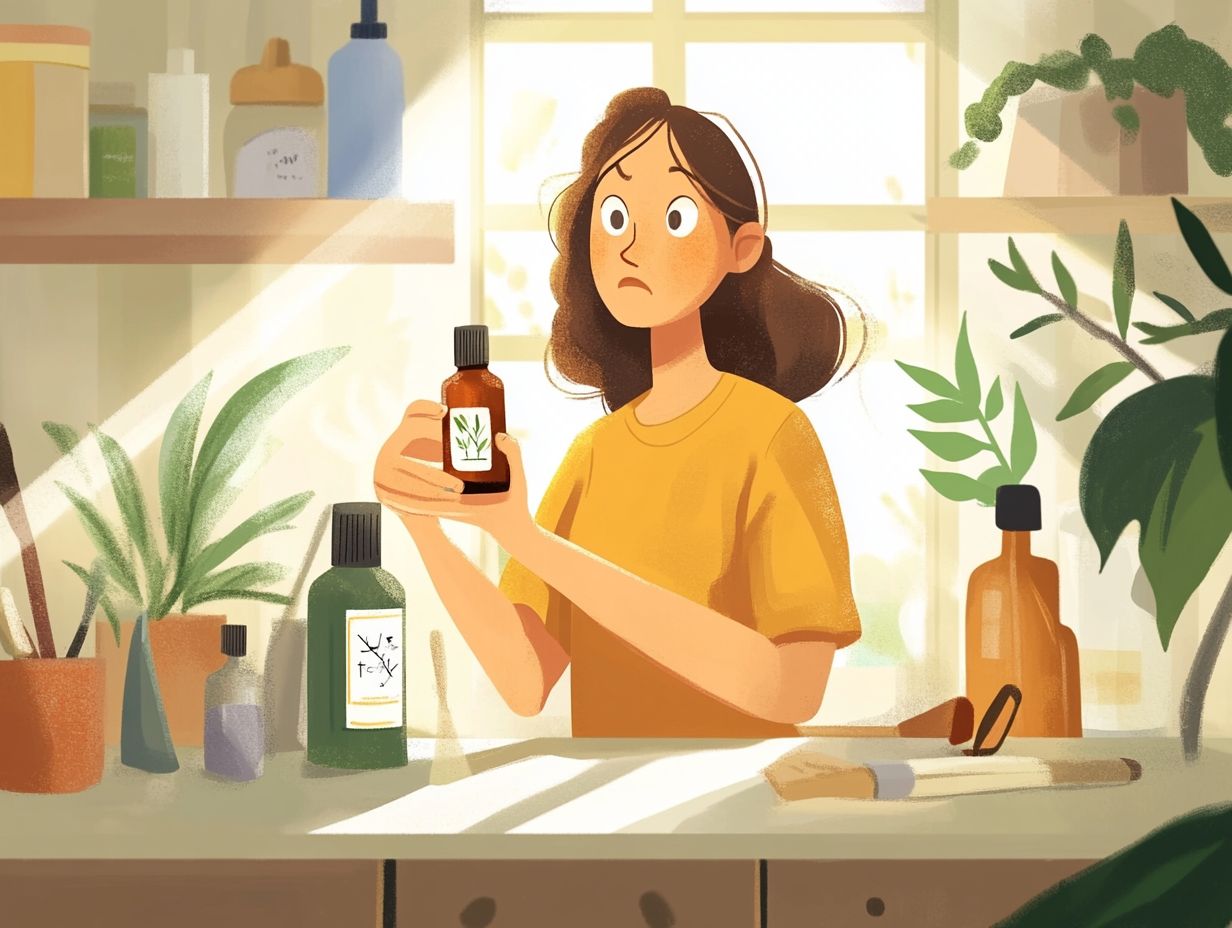
Yes, you can mix different types of essential oils when cleaning, but it’s important to research and understand their properties and potential reactions. Ensuring safe and effective usage is key. Some oils may not mix well together and could cause adverse effects.
Are essential oils safe for all surfaces?
No, not all surfaces are suitable for cleaning with essential oils. Some oils may damage or stain certain materials, so it’s essential to test a small, inconspicuous area before using essential oils on a new surface. This is particularly important when using DIY recipes.
Can essential oils be used to clean everything?
While essential oils can be effective cleaners, they may not be suitable for all types of cleaning tasks. For example, they may not be strong enough to remove tough stains or disinfect surfaces. It’s best to use them as a supplement to traditional cleaning methods. Essential oils can enhance cleaning products through their natural antibacterial properties.
Don t wait start using essential oils wisely today! Share your experiences or try out new essential oil recipes!
What should I do if I accidentally get undiluted essential oil on my skin?
If you accidentally get undiluted essential oil on your skin, wash the area immediately with soap and water. Act quickly to minimize irritation!
If irritation occurs, apply a base oil, like coconut or olive oil. This will help dilute the essential oil and soothe your skin.
Always remember to take precautions to prevent toxic reactions.
How should I store my essential oils for cleaning purposes?
Store your essential oils in a cool, dark place, away from sunlight and heat. This will help maintain their effectiveness and longevity.
Purchase oils from reputable brands to ensure quality and organic sources. Keep them out of reach of children and pets for safety.

